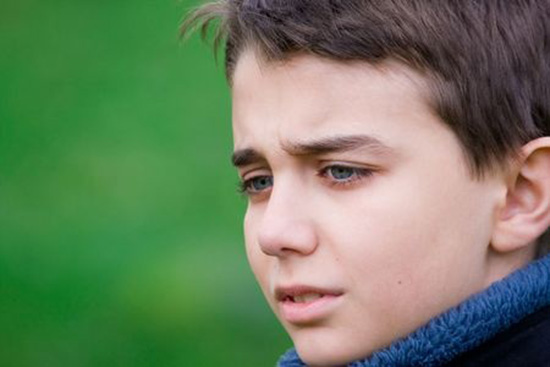 .
.
Kids in trauma and crisis pick up on what is going on in your mind. This is especially true of kids from divorced situations or children who have experienced some type of trauma, like a school shooting. Your presence of mind makes a difference to a child who has experienced a crisis. These kids need you to be in the moment so to speak. Be there in your mind and your physical being.
It’s as if they can read your thoughts, feel your heart and see your attitude toward them.
I’ve often said kids are like dogs because they can smell fear.
- They know if you are afraid.
- They will attack you when they don’t feel safe. Or they lash out at anyone around them including other children.
- It’s a control issue – they try to control you so you can’t control them when they are fearful.
Kids of trauma are intuitive. Perhaps it’s because they have to adjust to different situations at a young age. Crisis and trauma change even the very young. Maybe it’s because some kids live in two or even three homes with very different people and they try to please everyone.
Here’s how this phenomenon manifests itself in a variety of scenarios:
Community shootings
- Children listen to the news or to adults’ concerns about the shooting.
- Children form their own perception of the situation and it might not be the correct perception.
- Children no longer feel safe in their community including at school, shopping, at church, etc.
- Children need calm adults surrounding them and assuring each child they are safe.
Divorce and foster care arrangements
- They learn early on to read an adult’s body language.
- They become chameleons and take on the “color” of their surroundings – such as attitudes, anger, hostility and even physical nuances.
- Maybe hyper-vigilant about watching everything that is going on in a room.
- Maybe tense and nervous around new adults.
Natural disasters
- If a child has experienced a horrific natural disaster they may be hyper-vigilant about observing everything in their environment.
- They watch everyone around them.
- May be waiting on an alarm to sound or a weather warning to go off.
- They may keep an eye on what is happening outside the windows.
Physically abused
- If a child has been physically abused they may sit with their backs to the wall or in the last chair in the room.
- They do this so they can see everyone that comes into the room.
- They do it so they can see if anyone in the room is coming at them.
Sexually molested
- If they have been sexually abused, they may have blocked it out but in the recesses of their minds, they will self-protect.
- They may pull back when touched.
- They may be jumpy or hyper.
- When they smell certain colognes that the perpetrator wore, they may get physically ill.
What is going on in your mind can cause them concern. If you have something on your mind and you are not present in the moment, it might scare them. In the least, it says to them they don’t matter enough for you to be listening to them.
Not present in the moment
When my 4-year-old grandson was moving to an island off the coast of Portugal he decided to tell me about his new fold-up wagon. As he was talking, I have to admit my mind was not on what he was saying. I was saying, “Uh, huh. Yes. I see. Ok!”
My mind was whirling through the past year I had spent with him while his mom was deployed to Afghanistan. We had lived together; eaten our meals together; I had tucked him into bed and held him when he missed his mom and when he cried at the injustice going on in his little world.
Now he was leaving and I knew it would be a long time before we would see each other. As I was mentally walking through the past year I heard him say, “Nana, nana! Stay with me here!”
Even at a young age, he knew I was not present in the moment.
If you are thinking about what you have to do next or you forgot to take the chicken out of the freezer for dinner tonight, or whatever, these kids know you are not in the moment with them. It will affect your relationship with them.
It is really a very simple thing you can do for a child who has experienced any kind of crisis. Just be in the moment with them.
This article is updated and adapted from an article originally published on the Kids & Divorce blog on October 9, 2014.
DC4K blog posts are great for training children’s leaders and volunteers, and they are free. Subscribe now.
Want to learn more about how to start a DivorceCare for Kids group for the hurting children in your community?
Like our DivorceCare for Kids and Single & Parenting Facebook pages where we give awesome parenting tips for the single parents in your ministries.
Look for Linda’s book, “The Single Parent Confident and Successful” at Amazon.com or Baker Books.









